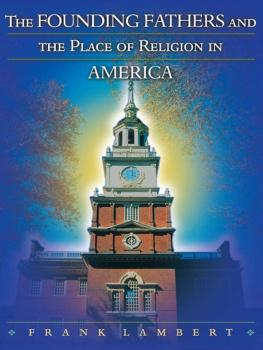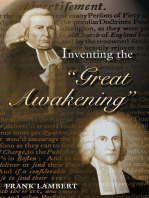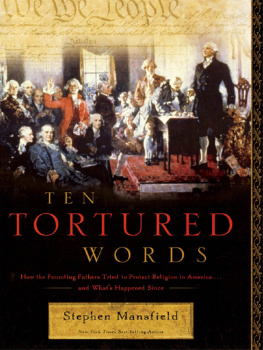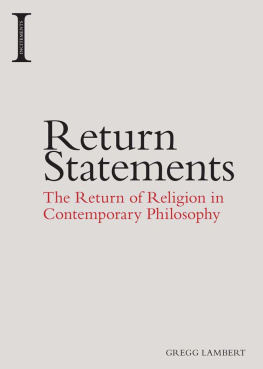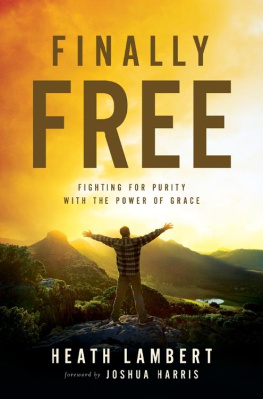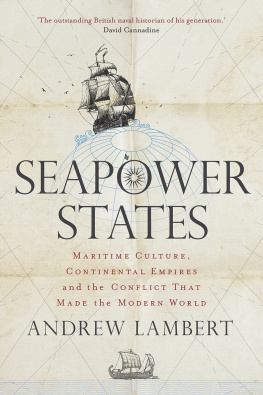Frank Lambert - The Founding Fathers and the Place of Religion in America
Here you can read online Frank Lambert - The Founding Fathers and the Place of Religion in America full text of the book (entire story) in english for free. Download pdf and epub, get meaning, cover and reviews about this ebook. year: 2010, publisher: Princeton University Press, genre: Religion. Description of the work, (preface) as well as reviews are available. Best literature library LitArk.com created for fans of good reading and offers a wide selection of genres:
Romance novel
Science fiction
Adventure
Detective
Science
History
Home and family
Prose
Art
Politics
Computer
Non-fiction
Religion
Business
Children
Humor
Choose a favorite category and find really read worthwhile books. Enjoy immersion in the world of imagination, feel the emotions of the characters or learn something new for yourself, make an fascinating discovery.
- Book:The Founding Fathers and the Place of Religion in America
- Author:
- Publisher:Princeton University Press
- Genre:
- Year:2010
- Rating:3 / 5
- Favourites:Add to favourites
- Your mark:
The Founding Fathers and the Place of Religion in America: summary, description and annotation
We offer to read an annotation, description, summary or preface (depends on what the author of the book "The Founding Fathers and the Place of Religion in America" wrote himself). If you haven't found the necessary information about the book — write in the comments, we will try to find it.
How did the United States, founded as colonies with explicitly religious aspirations, come to be the first modern state whose commitment to the separation of church and state was reflected in its constitution? Frank Lambert explains why this happened, offering in the process a synthesis of American history from the first British arrivals through Thomas Jeffersons controversial presidency.
Lambert recognizes that two sets of spiritual fathers defined the place of religion in early America: what Lambert calls the Planting Fathers, who brought Old World ideas and dreams of building a City upon a Hill, and the Founding Fathers, who determined the constitutional arrangement of religion in the new republic. While the former proselytized the one true faith, the latter emphasized religious freedom over religious purity.
Lambert locates this shift in the mid-eighteenth century. In the wake of evangelical revival, immigration by new dissenters, and population expansion, there emerged a marketplace of religion characterized by sectarian competition, pluralism, and widened choice. During the American Revolution, dissenters found sympathetic lawmakers who favored separating church and state, and the free marketplace of religion gained legal status as the Founders began the daunting task of uniting thirteen disparate colonies. To avoid discord in an increasingly pluralistic and contentious society, the Founders left the religious arena free of government intervention save for the guarantee of free exercise for all. Religious people and groups were also free to seek political influence, ensuring that religions place in America would always be a contested one, but never a state-regulated one.
An engaging and highly readable account of early American history, this book shows how religious freedom came to be recognized not merely as toleration of dissent but as a natural right to be enjoyed by all Americans.
Frank Lambert: author's other books
Who wrote The Founding Fathers and the Place of Religion in America? Find out the surname, the name of the author of the book and a list of all author's works by series.

